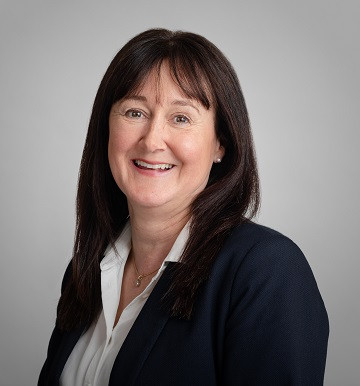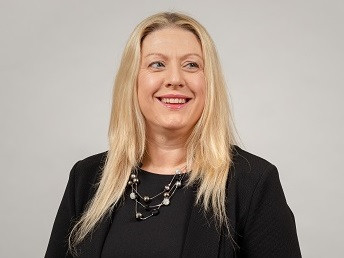"I would just like to say how very pleased I am with the outcome of the final hearing on Wednesday…Thank you all for doing a great job for me and my child."
Social Services is a government organisation that aims to protect the welfare of children and vulnerable adults. Its purpose is to support children, vulnerable individuals and their families through difficult times to safeguard them from harm or abuse.
For some people the idea of Social Services being involved with their child means they will be taken away from them, but this isn’t always the case. There can be many reasons why Social Services gets involved with your child and it doesn’t always follow that your child will be placed into care.
If Social Services is involved with you, it’s really important you seek legal advice so that you understand why legal steps have been taken and what the options are for you and your child.
-
Do I have to let social workers talk to my children?
Unless there’s a court order in place which puts your child in the care of Social Services, you’re not obliged to allow a social worker to speak to your child. That said, if you don’t cooperate and allow social services to investigate, it may lead to them believing you’ve something to hide which could have longer term consequences for your case.
Does a social worker have the power to take my child away from me?
Not without the permission of the court, although if a child is in immediate danger the local authority will contact the police which will assess whether the child should be placed under protection. If this is the case, the police can remove the child from the parent(s) for up to 72 hours.
Alternatively, the local authority would have to apply for an emergency protection order or interim care order. Unless there are exceptional circumstances, the order will only be made if the parents are aware of the application and have the opportunity to attend court to present their case.
Social services have arranged a child protection conference, what is this?
If a child is at risk or harm, the local authority will hold a strategy meeting to discuss what action needs to be taken to investigate the situation. This is known as a section 47 enquiry. If the results of the investigation are that the local authority believes the child is suffering or is likely to suffer significant harm, the local authority will arrange a child protection conference.
The conference is a meeting of the parents and all key professionals involved with the child in which they discuss whether the concerns are so serious that a child should be put on the child protection register.
What’s a PLO or pre-proceedings meeting?
A PLO – or Public Law Outline – is the procedure which governs how local authorities deal with children whose welfare it understands to be at risk. In these instances, the local authority has to consider whether a court order is required to protect the child. A PLO/Pre-proceedings meeting is arranged to advise the family that the local authority has enough evidence to take the case to court, however, this route is a last resort so the meeting offers the family a final opportunity to work with Social Services to avoid court action.
During the meeting the local authority will outline its concerns, setting out a contract of expectations, which include the steps and actions it expects the family to take to avoid court action, along with timescales in which to put these steps into place. An assessment of the parents and other family members who are able to care for the child if they can’t remain with their parents, will also be included in the contract.
I’ve received a PLO letter, what should I do?
A PLO letter is your invitation to attend a PLO/pre-proceedings meeting, which you should attend. Prior to the meeting, you should arrange to see one of our solicitors who specialise in child care proceedings, taking your letter with you to your appointment. Where a PLO letter has been received there’s automatic, non-means and non-merits tested legal help available so you can receive legal advice and assistance. We can discuss this further with you when you call.I’ve been asked to sign a section 20 agreement, what should I do?
Section 20 of the children act 1989 places a duty on the local authority to provide accommodation for a child in certain circumstances, such as when a parent can no longer provide the child with suitable accommodation or care. This is often used by social services as a way of placing children in foster care without first having to obtain an order from the court.
You can’t be forced to sign a section 20 agreement and if you do, you’re able to withdraw your consent at any time. You need to be aware, however, that if the local authority is seeking a section 20 agreement and you don’t consent, it may apply to the court for an order. If you’ve been asked to enter into a section 20 agreement it’s important you obtain legal advice sooner rather than later. If you call us, we’ll be able to discuss your circumstances and assess if you’re eligible for public funding.
& we think you might also find these helpful...
- Family Law services
- Divorce
- Separation
- Finances
- Children law
- Domestic Abuse
- Same Sex Marriage / Civil Partnerships
- Social Services: No Court Proceedings Issued
- Social Services: Court Proceedings Issued - Care Orders
- Unravelling Common Myths about Divorce
- Cohabitation
- Surrogacy
- Same Sex Parenting
- Christmas Contact
- Child Contact Arrangements
- Relocating with your child within the UK
- Relocating abroad with your child
Our team of Family Law Specialists

Amanda Connor
Family Solicitor (Consultant)

Jean Flanagan
Family/Director Partner

Michelle Moss
Family/Director Partner

Sonya Mehmood
5 out of 5
Family Solicitor

Melissa Billington
5 out of 5
Associate Solicitor Family

Sophie McCrory
Trainee Solicitor Family

Jilal Mahmood
5 out of 5
Family Solicitor

Shabana Issop
5 out of 5
Family Solicitor

Klaudia Jagiela
Family Solicitor

Alice Howells
Trainee Solicitor Family
Frances Shickell
Family Solicitor

Keith Bull
Head of Private Family

Natasha Harford
Trainee Solicitor Family
Family"Definitely I would recommend anyone to get help from your Russell & Russell legal services"
Family"Everything ran smoothly and quickly and I found Sarah and Russell & Russell to be professional and very helpful - very pleased!"
Family"Thank you for all the support and help you have given me throughout my divorce, you made what was a stressful period seem straightforward and easy!"
Family“I just want to say a HUGE thank you to you for all you have done for me since I set foot in your office in mid February. I was very nervous as it had taken me nearly 5 years to decide to go for a divorce. You have been so kind and patient throughout the process. I have learnt a lot from you. Thank you for your understanding of my case and understanding me and sorry if I had the odd 'wobble'.
“This is a life changing moment for me. The transfer of the house went through… with Michele Benson who has also been very kind. I now have financial security in the form of the house for my future and the boys future. I also feel liberated that I am no longer married… and can now move on with my life.
“You have made this happen for me and I am extremely grateful to you.”
Family



